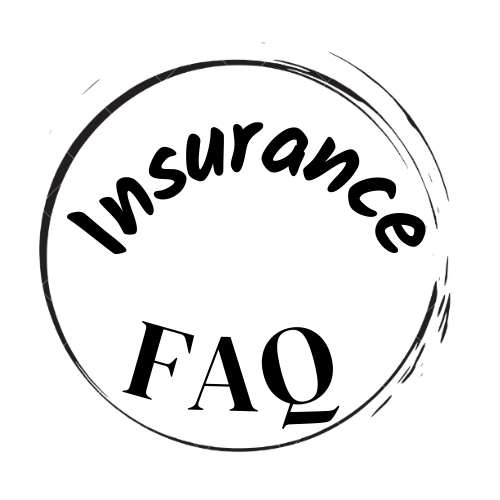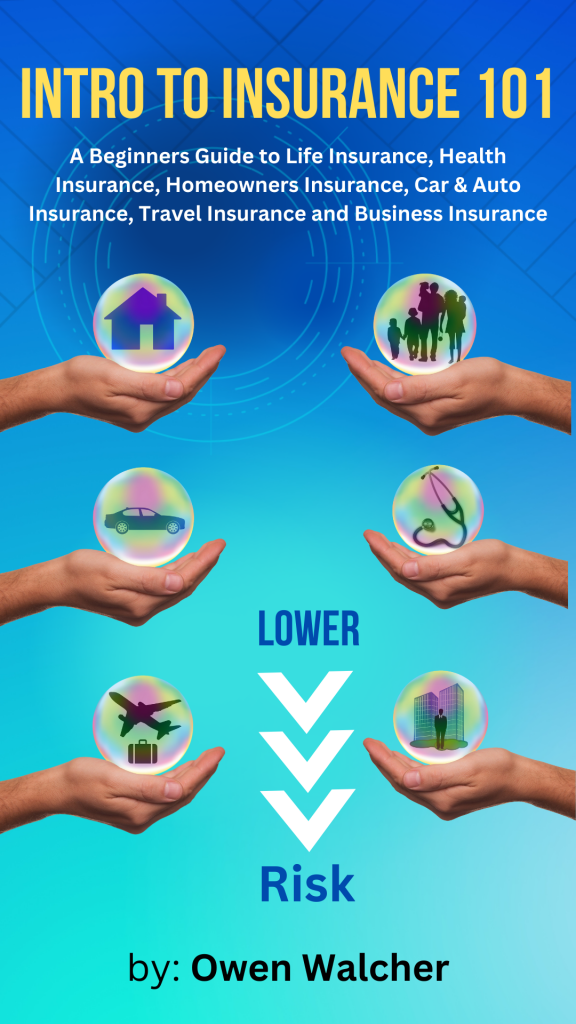
What is Auto Insurance?
If you own a car, you understand the benefits of safeguarding your vehicle. For those planning to hold one sooner or later in life, you need to know why it is important to keep your car safe. Auto insurance offers peace of mind when you get involved in an accident, your vehicle gets vandalized, stolen or suffers damage from a natural disaster.
Individuals make annual or semi-annual payments to a specific insurance company instead of paying for auto accidents out of pocket. The company then pays some or most of the costs related to the vehicle damage.
When you purchase car insurance, you are essentially entering into a contract with the insurance provider, agreeing to pay premiums in return for protection against financial losses resulting from accidents or other damage to the vehicle.
State Specific Requirements for Car Insurance
Did you know that each state in the USA has different auto insurance coverage requirements. Select your state from the list below to better understand exactly what your state requires you to carry in the way of car insurance.
AL – AK – AZ – AR – CA – CO – CT – DC – DE – FL – GA – HI – ID – IL – IN – IA – KS – KY – LA – ME – MA – MD – MI – MN – MS – MO – MT – NC – ND – NE – NH – NJ – NM – NV – NY – OH – OK – OR – PA – RI – SC – SD – TN – TX – UT – VT – VA – WA – WV – WI – WY
What are the Components of car insurance?
Car and auto insurance policies are made up of specific components, which each cover a different liability and thus reduce your risk.
Body Injury Coverage
If you, as the policyholder, injure someone else, the injury is covered by your bodily injury liability insurance coverage. When you use someone else’s vehicle with their consent, you are also insured, as are any family members specified on the insurance policy.
It’s crucial to carry enough liability insurance, since, in a catastrophic accident, you could face a significant financial lawsuit. It is advisable for policyholders to buy additional liability insurance than the minimum amount required by the state. This additional liability safeguards money and other assets like your home.
Own Damage Coverage
Own-damage coverage, a crucial component of comprehensive auto insurance, offers protection against any damage to the covered vehicle. The entirety of the Information on own harm is revealed under this policy section. It would help if you decided whether the incident that damaged your car is covered before you file a claim.
Collision Coverage
Damage to your car from collisions with other vehicles, objects like telephone poles or trees, or flipping over is covered under collision coverage (note that collisions with deer are covered under comprehensive). Additionally, pothole damage is covered.
Typically, collision insurance is sold with a separate deductible. Even if you caused the incident, your collision coverage would pay for repairs to your automobile, less the deductible. If the accident was not your fault, your insurance provider might pursue recovery of charges from the at-fault driver’s insurance provider. If they are successful, they will also pay the deductible. If you vehicle is old and not worth much, you might consider waiving collision coverage.
Comprehensive Coverage
With this Insurance, you are compensated for losses due to theft or damage from sources other than collisions with other vehicles or objects. Comprehensive incidents include collisions with birds or deer, fire, falling items, missiles, explosions, earthquakes, windstorms, hail, floods, vandalism, and riots. If your windshield is broken or cracked, it will also be beneficial to have it repaired.
Although some insurers may give the glass element of the policy without cost, you will purchase comprehensive Insurance with a separate deductible.
Uninsured and Under-insured Drivers Coverage
You might get hit by an uninsured driver or a driver whose insurance is insufficient to cover your complete loss. In that case, you will receive reimbursement from the under-insured motorist coverage.
This coverage also provides safety in the case of a hit-and-run accident involving a covered driver or if you get struck by an uninsured or under-insured driver while walking or riding your bicycle.
How to Read an Auto Insurance Quote?
The insurance provider promises to cover your losses per the terms of your policy in exchange for a premium payment. Individually priced policies enable you to tailor the level of coverage to your specific requirements and financial constraints. Policies often have a renewal duration of six or twelve months. When it’s time to pay another premium and renew the procedure, an insurer will inform the client.
Nearly all states require car owners to carry bodily injury liability insurance, which covers payments related to injuries or fatalities that you or another driver causes while operating your vehicle, whether or not they demand possessing a minimum amount of auto insurance. Additionally, they could require property damage liability, which pays for harming you or another driver of your automobile caused to another vehicle or piece of property.
The coverage limits (your coverage limit) that the insurer will pay for a covered incident and your out-of-pocket expenses, should you need to make a claim, are all included in insurance quotations.
Why do Different Deductible Amounts Affect Price so Much?
Property, health, and casualty insurance products have insurance deductibles. Deductibles are out-of-pocket expenses funded before the policy takes effect and begins to pay claims.
Deductibles vary depending on the insurer, coverage, and premium amount you pay. The common rule is that you pay lower monthly or annual rates if your policy has a high deductible. This rule applies because you pay various expenses before coverage commences. On the other hand, expect higher premiums with lower deductibles. When this happens, the insurance policy starts paying significantly more quickly.
When policyholders file claims, insurance firms can split costs because you pay deductibles. Companies have two requirements for using deductibles: moral hazard and financial stability.
#1. Deductibles reduce moral hazard risk
The possibility that the insured might not act honestly constitutes a moral hazard. Insurance protects policyholders from financial losses; hence, there is a moral hazard: The insured party can freely behave riskily without worrying about financial challenges.
For instance, drivers with auto insurance might feel compelled to drive carelessly. No deductible means they have no stake in the outcome. Because the policyholder is accountable for some expenses, a deductible lower that risk.
#2 Deductibles to guarantee certain financial stability
By lowering the severity of claims, insurance policies use deductibles to guarantee certain financial stability on the insurer’s side. A well-constructed insurance policy offers protection from catastrophic loss. A deductible is a buffer between a minor and genuinely disastrous loss.
Who Needs Car Insurance?
Practically all states require drivers to have auto insurance. However, this is different in some states. Drivers in New Hampshire are not required to get auto insurance. Still, they are required to provide documentation demonstrating their ability to cover the costs of an accident if it is their responsibility.
Because the law demands so, most motorists have auto insurance. However, it does not mean you should only get the bare minimum of protection.
When Should I buy Car Insurance?
Owning a car has long been seen as a sign of independence and limitless opportunity. You nearly feel like you are turning up the music and cruising off into a technicolor horizon. The opening sequence is played. However, car ownership comes with sound advice for all the exciting adventures you intend to go on: great driving comes with big financial responsibility.
If you are asking whether you need car insurance before you purchase your car, then the answer is no. You don’t have to buy a cover for you to take your first baby home. Most women refer to cars as babies nowadays. You can buy without Insurance, but I don’t think you want to do that.
Most likely, you won’t be able to legally drive away with your new acquisition if you don’t have Insurance. In some states, the registration process typically starts at the dealership, and most states need confirmation of liability coverage. Even though it’s not required, having auto insurance is usually a good idea before purchasing a car.
Where Do I Buy Auto Insurance?
Car insurance could be available at the dealership. For instance, the lender may offer to arrange Insurance for you if you finance your automobile at the dealership and are obliged to have collision and comprehensive Insurance. Although it may seem convenient, this is not the greatest strategy to find the lowest cost for auto insurance.
The lender or automobile dealer might only be able to engage with one or a few auto insurance providers. You may research and compare rates from numerous insurers when shopping around beforehand. It will save you time and money instead of getting quotations at the dealership.
As a teenager, you might want the same insurance provider as your parents. You need to understand that your parents may had their insurance with the same provider for many years and are thus offered good driver discounts, but this doesn’t necessarily indicate that it is the best option for you.
The best action is to shop around and compare prices from different businesses. I will mention some of the short reviews of the top best insurance companies to work with. They include;
Nationwide
For specific types of drivers and various add-on coverages, Nationwide offers reasonable rates for auto insurance. It is a firm to look into if you’re looking for auto insurance because the number of complaints against it for that coverage is relatively low. Nationwide provides drivers who wish to cut their rates based on actual driving with a usage-based insurance scheme and a pay-per-mile option.
Travelers
Overall, Travelers offers reasonable pricing for a variety of drivers. The organization is a wonderful option to consider when comparison shopping because it also offers several optional services that can provide you with superior insurance protection. It receives extremely few complaints from state insurance departments.
State Farm
Consider State Farm due to its highly competitive auto insurance premiums and low complaint rates. It is one of the best companies to work with, especially if you have caused accidents in the recent past. If you are looking for discounts while the company is monitoring you, State Farm is the best place to go. However, if you are looking for new car replacements, I advise you to look elsewhere.
Allstate
Allstate provides a wide range of coverage options, from disappearing deductibles to accident forgiveness. In addition, it has a history of having few vehicle insurance complaints filed with state insurance departments, which helps balance out rates often higher than those of its top rivals.
Erie Insurance
Erie has solid coverage options and receives high marks for handling accident repair claims. These benefits balance Erie’s variable auto insurance premiums based on your driving history.
Geico
If you’re looking for affordable auto insurance, Geico has very reasonable prices for many drivers. Another incentive to consider Geico is the company’s low number of auto insurance complaints.
When comparing auto insurance quotes, you might find many different viewpoints on the company to select and the type of coverage to purchase. One of the best methods to save money is to compare prices from several insurance providers. And it’s not a lengthy procedure. Finding the greatest auto insurance prices and the right policy requires a small amount of time.

